
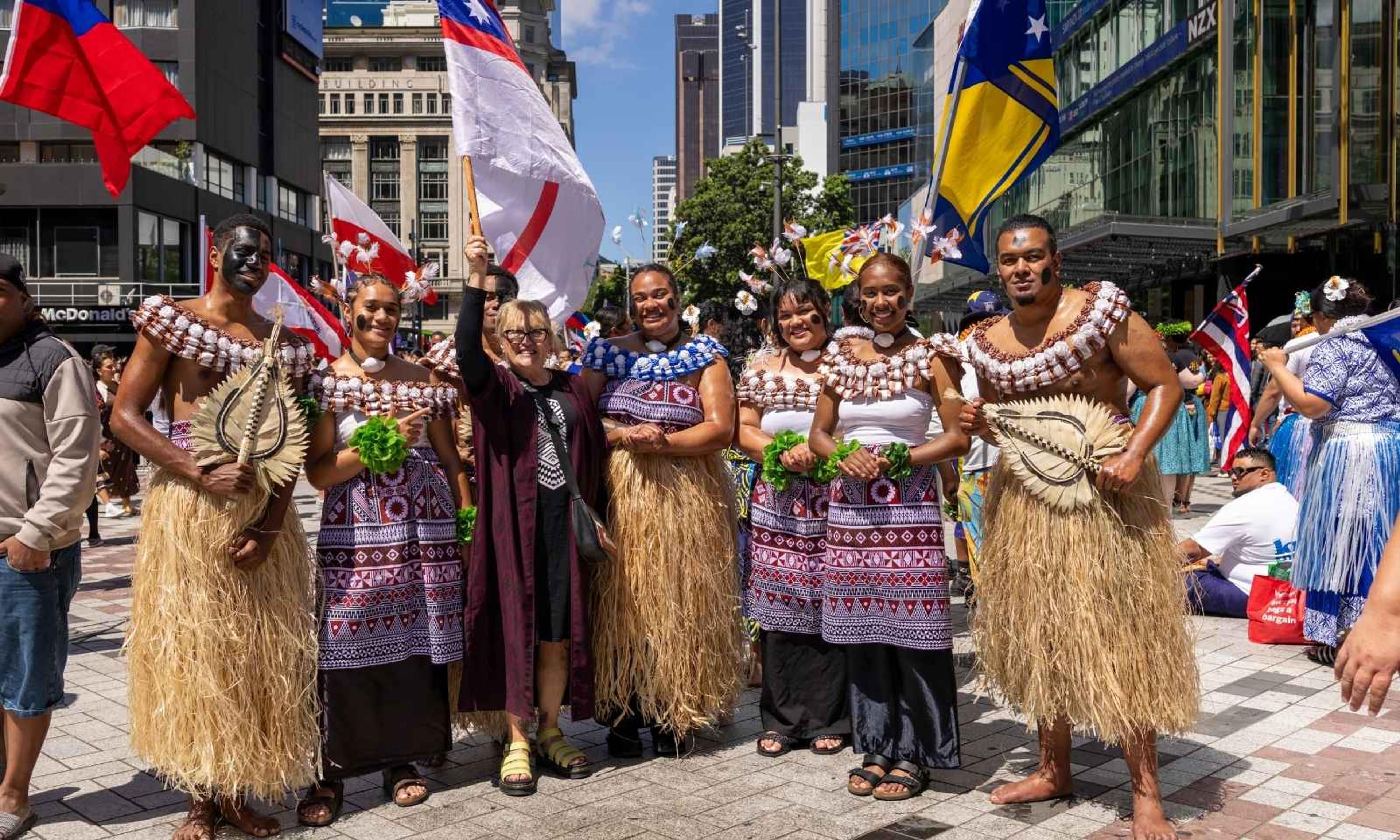
The World Indigenous Peoples’ Conference on Education’s opening pōwhiri on Sunday.
Photo/Tamaira Hook
Pacific voices lead the way as WIPCE kicks off in Auckland, urging Indigenous solutions
More than 3000 Indigenous educators have gathered in Tāmaki Makaurau to focus on ancestral knowledge as a guide to address today’s climate challenges.



US funding cuts threaten to 'dry up' future of Pacific scientists - expert
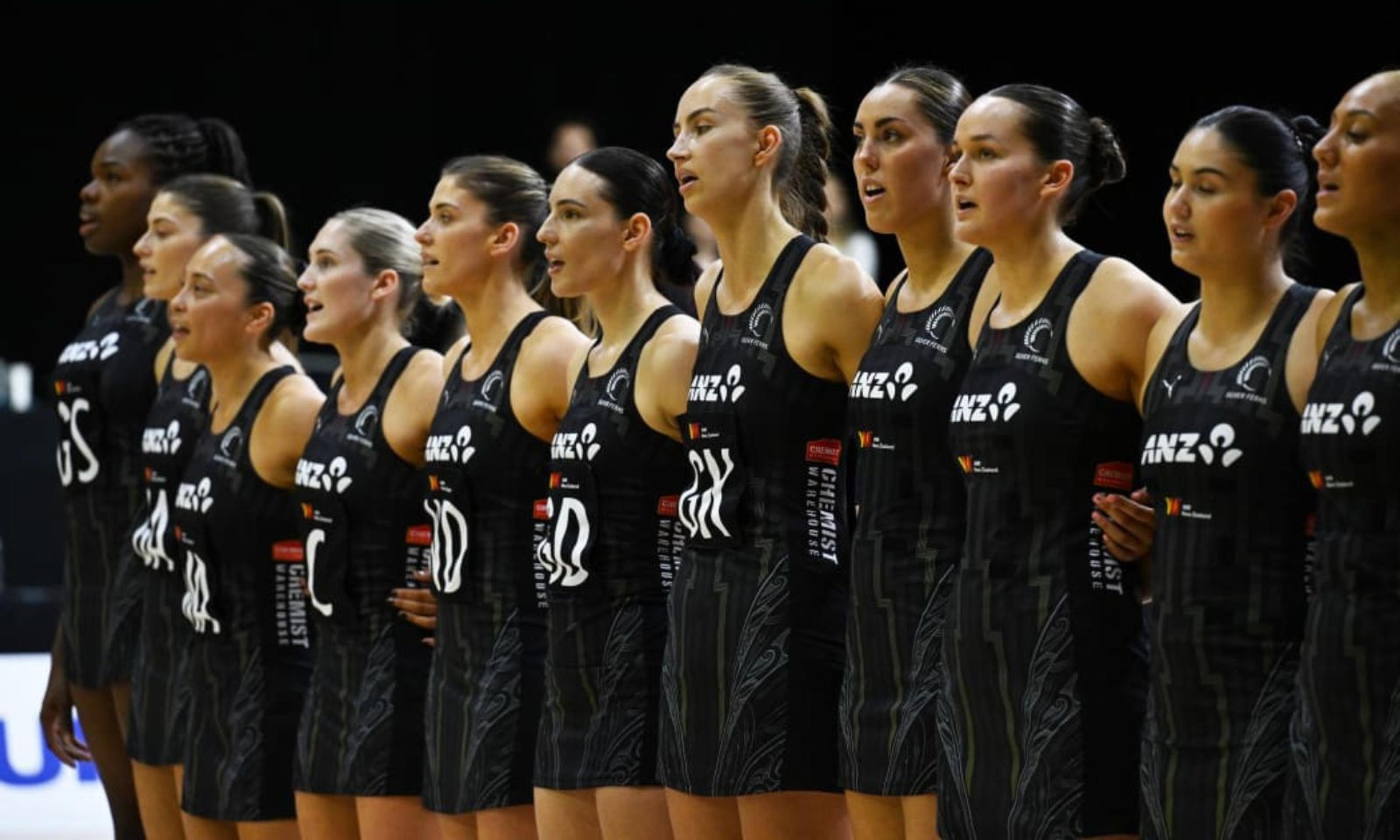
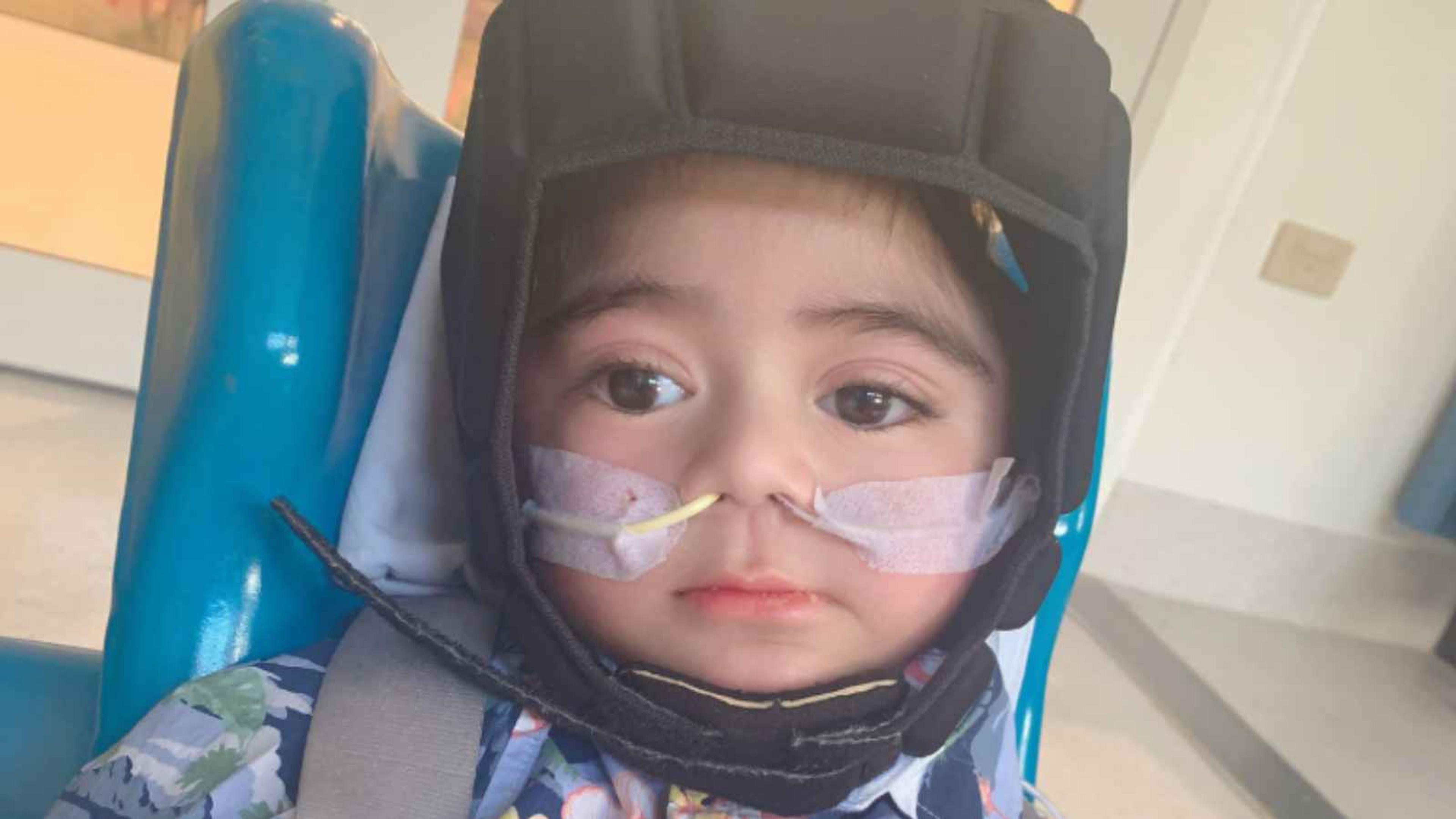
Immigration reassesses toddler's declined visa request as Children's Commissioner steps in


Inked across lands: How Pacific tattoo art is thriving in Germany

US funding cuts threaten to 'dry up' future of Pacific scientists - expert


Immigration reassesses toddler's declined visa request as Children's Commissioner steps in
With the World Indigenous Peoples’ Conference on Education (WIPCE) now fully underway, Pacific delegates are warning that the climate crisis is no longer a distant threat but a daily reality.
WIPCE opened its main conference programme at the Aotea Centre in Auckland on Monday, following a pōwhiri, welcoming ceremony, at Queens Wharf and a Parade of Nations on Sunday. The event has brought together more than 3000 delegates from across the world for a week of keynote speakers, workshops, cultural events, and academic sessions.
WIPCE includes presentations on education systems, climate, wellbeing, decolonisation and creative arts, with Indigenous leaders and scholars sharing research and community practice. Delegates also aim to turn the conference into a platform for indigenous solutions grounded in land, ocean, and ancestral practice.
Among the presenters is Dr Teina Rongo, an environmentalist from the Cook Islands Chairperson of Kōrero o te `Ōrau. He is using his keynote address to highlight how climate change is affecting the daily lives of Pacific communities.
Speaking with William Terite on Pacific Mornings, Rongo says the conference gives him the opportunity to share the work being made to revitalise indigenous culture, language, and traditional practices in response to the climate crisis.
“In terms of climate change, we can see a lot of things change around us. From the coast, the food that we rely on, both on land and also the ocean. We’re also realising how our traditional practices can be used as a solution to these problems,” Rongo says.
Watch Dr Teina Rongo’s full interview below.
Rongo has led an environmental programme for the past seven years, teaching young Cook Islanders to reconnect with their land and ocean. He believes this relationship has weakened over time, and warns that disconnection from the environment leads to “bad decisions”.
“We focus too much on doing stuff in class. It’s time that we start taking our children out into the environment as well. So the goal is to integrate a lot of traditional practices, outdoor activities, into the curriculum to build that relationship with our environment and resources.”
The Cook Islands government recently delayed any decisions on seabed mining until at least 2032. The Seabed Minerals Authority confirmed that companies will need to apply for a five-year renewal because they have not completed their approved research plans.
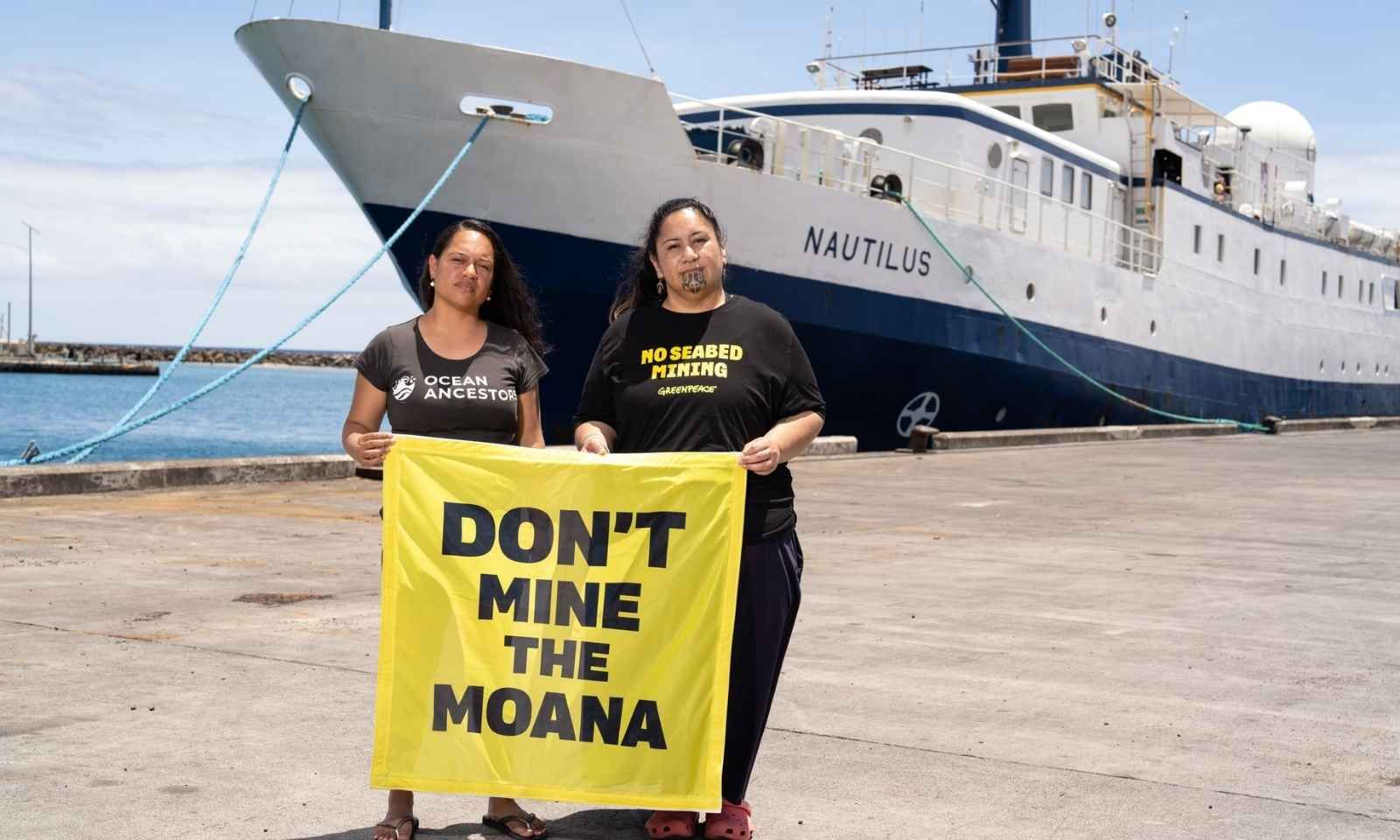
Ocean Ancestors’ members Louisa Castledine (left) and Juressa Lee oppose seabed mining. Photo/Greenpeace Aotearoa
The move follows months of public pressure, including Cook Islands activists confronting a United States-funded exploration vessel in Rarotonga with banners reading “Don’t Mine the Moana”.
Rongo says their organisation has always opposed the Cook Islands government’s stance on deep sea mining, describing the ocean as a marae (sacred space) that should not be disturbed.
“I don't even support the idea of exploring it, because exploration will lead to exploitation. So as a Non-Government Organisation, this is our stance on the issue, and we don't support it,” Rongo says.
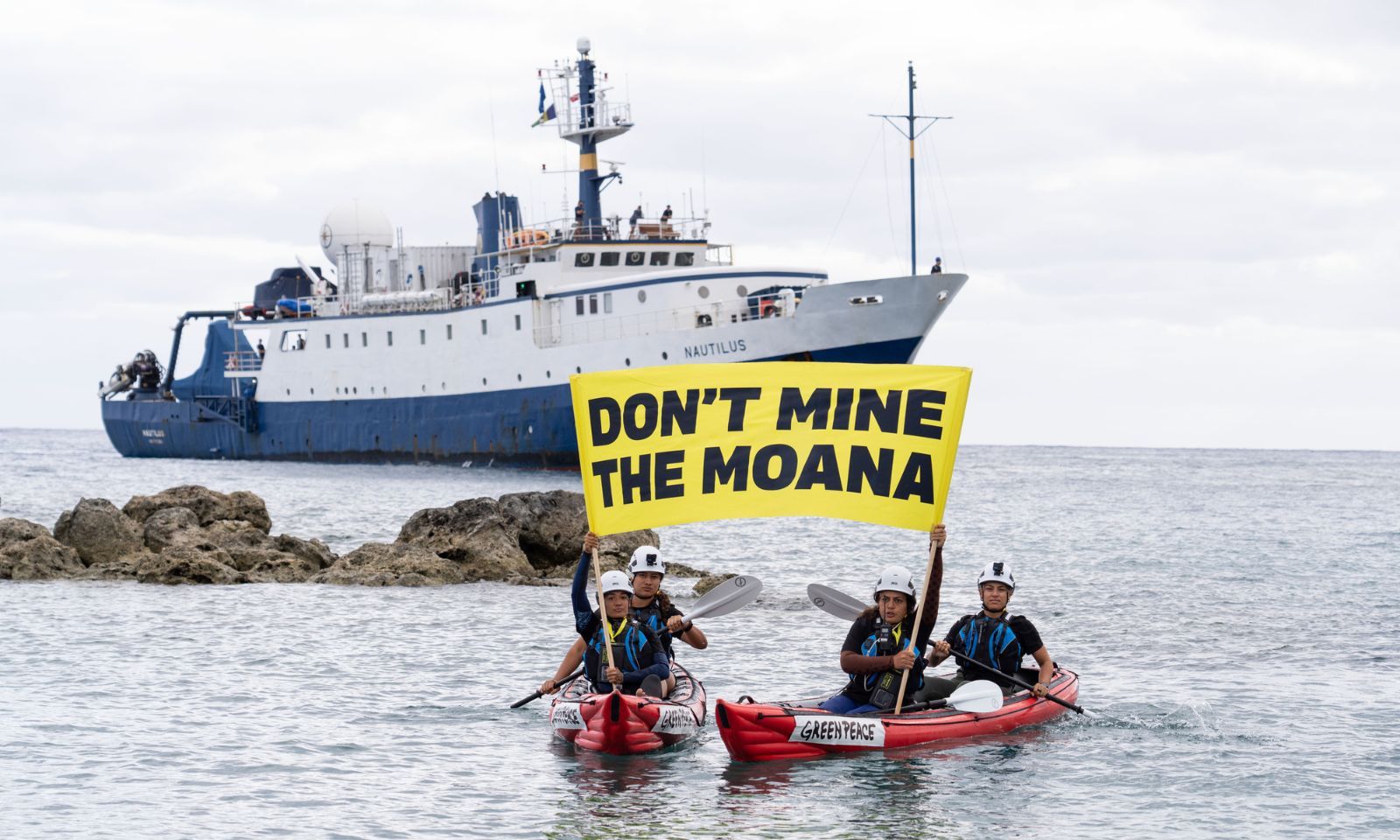
Cook Islands activists peacefully confront the US-funded Nautilus vessel in Rarotonga, holding a “Don’t Mine the Moana” banner to protest against deep sea mining in Pacific waters. Photo/Supplied
WIPCE is being hosted by Te Wānanga Aronui o Tāmaki Makau Rau Auckland University of Technology (AUT) and supported by Ngāti Whātua Ōrākei. Ngāti Whātua Ōrākei says hosting thousands of Indigenous delegates in Tāmaki Makaurau carries deep cultural significance for the city and its people.
Marama Royal, the Chairperson of Ngāti Whātua Ōrākei, says her community is proud to lead the pōwhiri and welcome nations from around the world to their ancestral lands. She says the opening ceremony affirmed the importance of grounding the week in tikanga (customs) and Māori values.
Meihana Durie, a WIPCE Co-Chair, says the gathering comes at a pivotal moment for Indigenous rights and education, reinforcing both the urgency and possibility of collective action. He says the pōwhiri and the Parade of Nations were powerful displays of unity that set a positive tone for the week ahead.
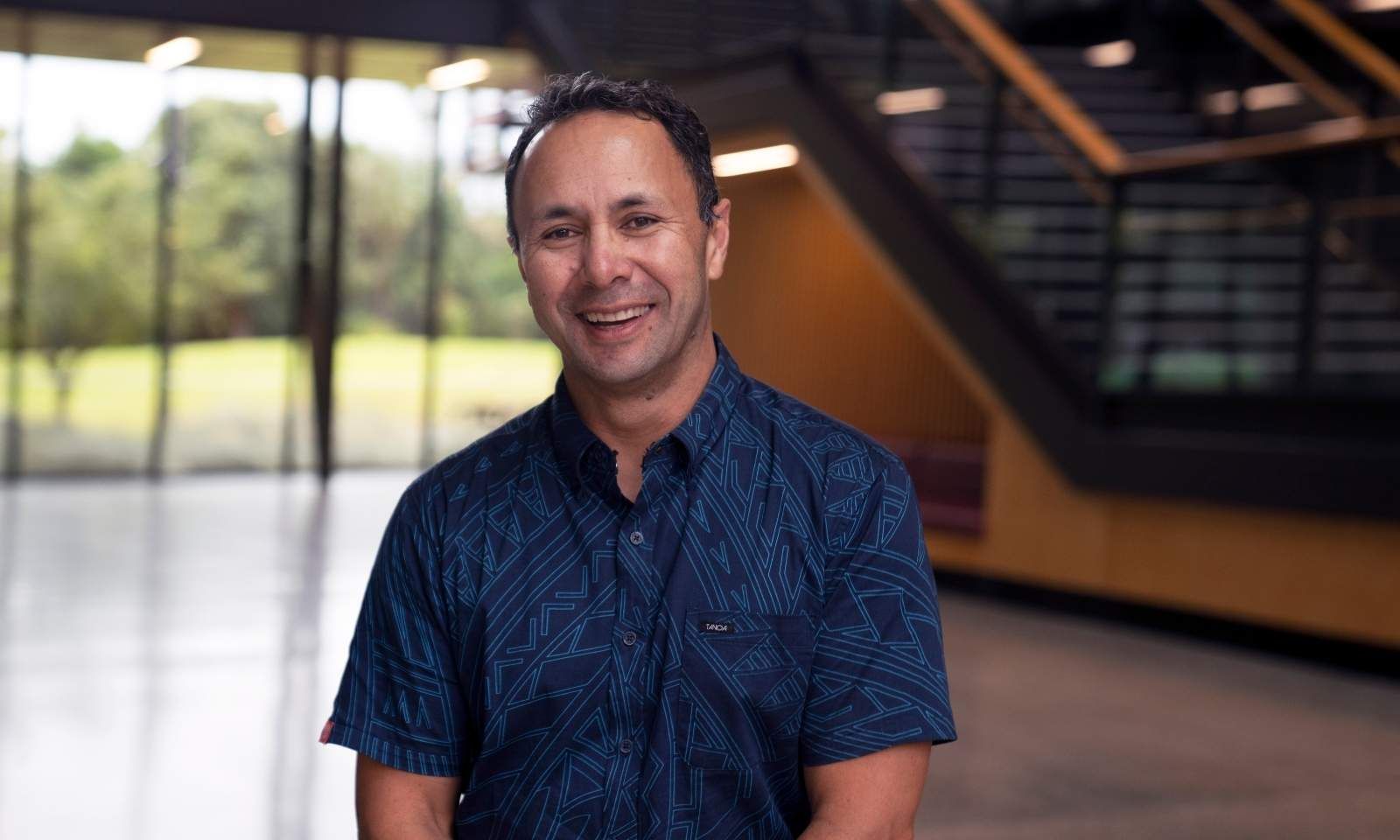
Toeolesulusulu Professor Damon Salesa, the AUT’s Vice-Chancellor and WIPCE Co-Chair. Photo/World Indigenous Peoples’ Conference on Education
In a press release, Toeolesulusulu Professor Damon Salesa, Vice-Chancellor of AUT and WIPCE Co-Chair, says the return of the conference after 20 years reflects the strength of Indigenous knowledge systems and the key role of Pacific-led institutions in advancing them.
“Each kaikōrero [speaker] brings their unique perspectives and knowledge. This conference is an opportunity to listen, learn and be inspired by those who continue to lead and shape Indigenous education across the world,” Salesa says.